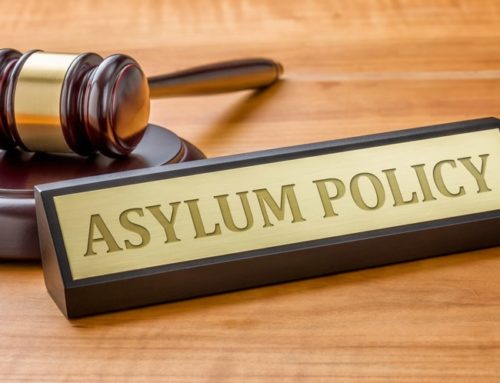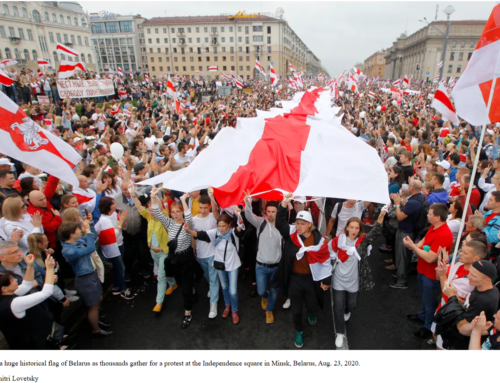Religion-Based Asylum from Azerbaijan
I.S. Law Firm has been successful in securing asylum for a young Muslim student systematically persecuted by the Azerbaijani government based on his religious beliefs and practices.
The challenge was to prove to the adjudicator that the government, in a historically Muslim country, brutally persecutes Muslim individuals and groups based on their Muslim practices. The government of Azerbaijan systematically detains, harasses and threatens individuals, mainly youth, who openly practice religion. Individuals are imprisoned and charged with “threat to public order” due to their religious practices.
The United States Commission on International Religious Freedom, in February of 2010, issued a statement, expressing concerns that the Azerbaijani government is violating its international obligations regarding respect for freedom of religion or belief along with the fundamental human rights, such as freedom of assembly and access to information. The Azerbaijani government strictly regulates Islamic institutions and practice. The report on the United States Commission on International Religious Freedom’s website states: “Amendments to the Azeri religion law, which were hurriedly passed last spring, have negatively affected many religious communities, particularly the country’s majority Muslim community and evangelical Protestant groups.”
The United States Department of State, 2009 Country Report on Human Rights in Azerbaijan very well summarizes the government’s oppression of religious activities, freedom of assembly and freedom of speech. To quote directly from the first page of the U.S. Department of State’s report: “The government continues to imprison persons for politically motivated reasons. Pervasive corruption, including in the judiciary and law enforcement, continued. Restrictions on freedom of assembly continued, particularly in terms of political organizing, peaceful protests, and religious activity. Restrictions and pressure on the media and restrictions on political participation worsened. The government imposed restrictions on the activities of some unregistered Muslim and Christian groups and local officials abused some members and congregations.”
In order to be granted asylum, the applicant must prove that he/she qualifies as a refugee. According to the official definition, a refugee is a person who, “owing to a well founded fear of being persecuted for reasons of race, religion, nationality, membership of a particular social group or political opinion, is outside the country of his/her nationality and is unable or, owing to such fear, is unwilling to avail himself/herself of the protection of that country; or who not having a nationality and being outside the country of his/her former habitual residence…., is unable or, owing to such fear, is unwilling to return to it”.
“Well founded fear” is defined through a reasonable possibility of persecution. The test consists of two parts: (1) Objective: the applicant must show that the fear is objectively reasonable, i.e. there is at least some possibility that the applicant will be persecuted if he/she returns to the country of origin. (2) Subjective: the applicant must show that his/her fear is genuine, i.e. he/she is a target of persecution.
There is no universally accepted definition of “persecution”, but Board of Immigration Appeals defines persecution as “infliction of harm or suffering by a government or persons a government is unwilling or unable to control, to overcome a characteristic of the victim. Examples include genocide; slavery; torture; cruel or degrading, inhuman treatment; threats of life; arbitrary arrest or detention; inability to earn a livelihood; inability to travel safely within a country; arbitrary interference with a person’s privacy; serious restrictions on access to normally available education; passport denial; constant surveillance; pressure to become an informant; confiscation of property.
Past persecution provides presumption of well founded fear. To show past persecution the applicant must prove that an incident: (1) Raises to the level of persecution; (2) Is on account of one of the five enumerated grounds (race, religion, nationality, membership in a particular social group or political opinion); (3) Is committed by the government or forces the government is unable or unwilling to control. Absence of past persecution is not a bar to asylum. The applicant may also qualify for asylum by showing a reasonable possibility of future persecution only.
In order to obtain approval of our clients’ asylum petitions, attorneys at I.S. Law Firm gather subjective and objective evidence, country reports, complete the forms, write memorandums, thoroughly prepare the applicant for the questioning and stand by the applicant’s side supporting him/her throughout the entire process. We are proud of our success rates in asylum cases, both affirmative asylum cases through the U.S. Citizenship and Immigration Services (USCIS) and defensive asylum cases through the immigration courts.
PLEASE NOTE THAT CASE RESULTS DEPEND UPON A VARIETY OF FACTORS UNIQUE TO EACH CASE. CASE RESULTS DESCRIBED BELOW DO NOT GUARANTEE OR PREDICT A SIMILAR RESULT IN ANY FUTURE CASE UNDERTAKEN BY I.S. LAW FIRM, PLLC.
If you think you may qualify for asylum, please contact us: +1-703-527-1779 or via e-mail: [email protected].






